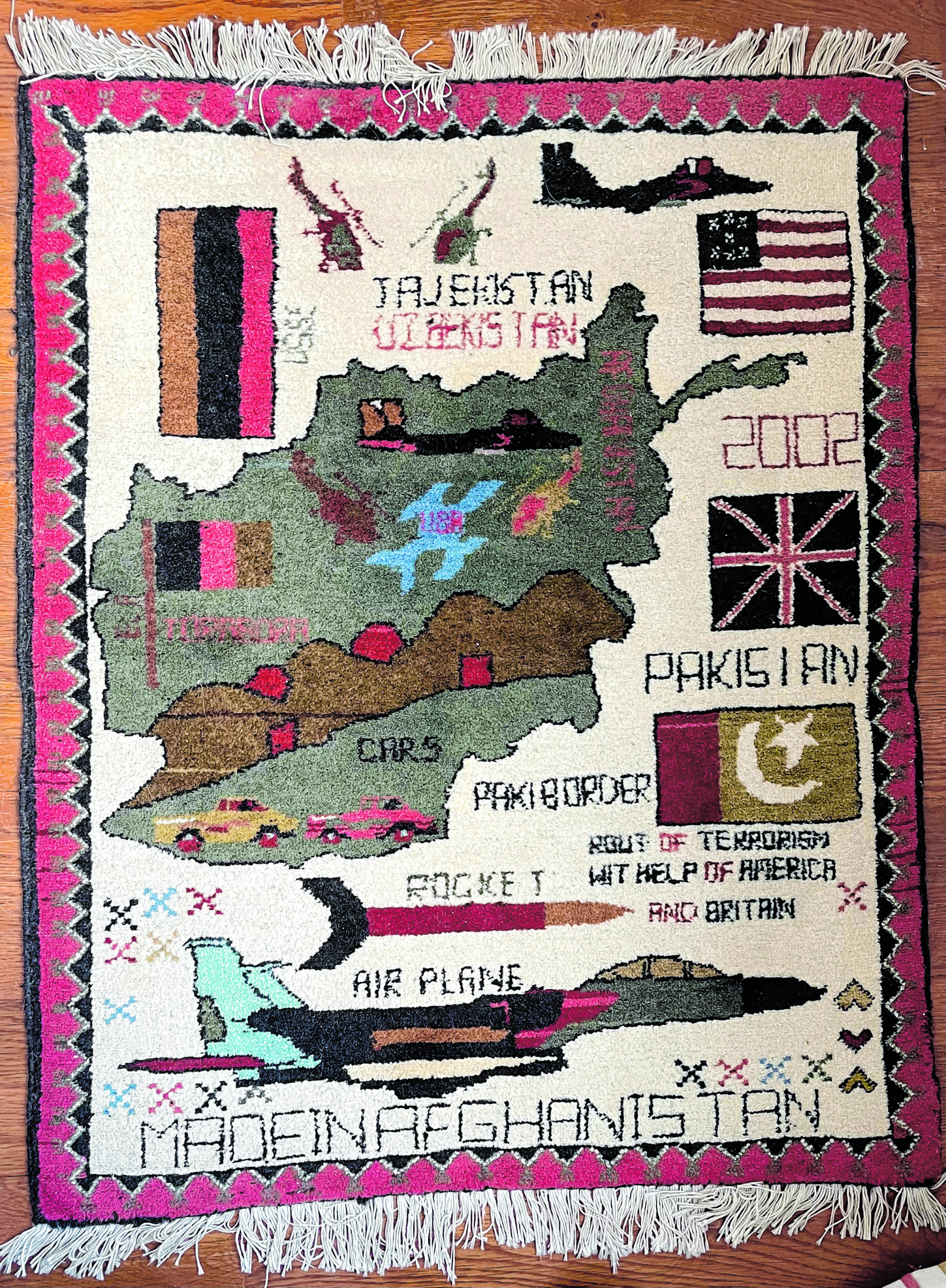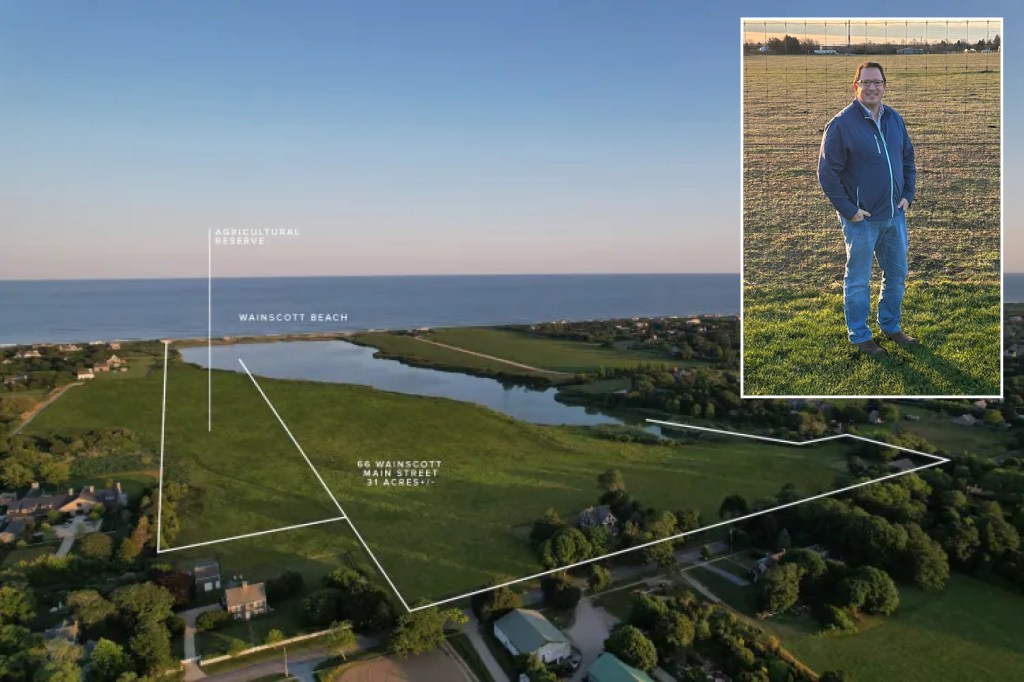Afghanistan, Sarabeth Levine and Other Hamptons Memories

In 2005, a young woman named Alexa Strait worked for Dan’s Papers doing layout and typesetting. She was a bright spot of sunshine for us in that year. She talked a lot about herself, her family and friends, but she was also a hard worker and we were glad to have her. Our office was in Bridgehampton at that time, in a former private home on the Montauk Highway I had purchased many years earlier. There was a front porch, a former living room, two former bedrooms upstairs, two bathrooms and an attic where we stored back issues of the paper.
One thing Alexa talked about was her older brother, who was a soldier in Afghanistan. She had a picture of him in a frame on her desk, a handsome fellow with a helmet and rifle in his late 20s, who was now serving his third tour of duty.
I don’t recall if it was Alexa or somebody else, but one day, the office decided we should send a care package to her brother. Alexa told us what to get and everybody brought in stuff – candy bars, magazines, fruit bars and so forth — and we packed it up and sent it off. There were about 20 people who worked at the paper then. And we all felt good about ourselves. A few weeks later, Alexa brought in a letter he had written, thanking us. He’d shared much of the package with members of his platoon.
Six months later, he stopped by. He had finished his tour and was thinking of taking a fourth but he wanted to thank us in person.
He was every inch a soldier. Short haircut, upright, a quiet listener, very fit and engaging.
At one point, I got a chance to talk to him alone.
“What’s it like over there?” I asked. “You think we should be there?”
“It’s not my place to have an opinion about it,” he said. “I do what I’m told. My unit is based in Kandahar Province — rocky terrain, small villages here and there. Cows and chickens, goats. The villagers live hardscrabble lives. There’s dirt roads between the villages. Been like that forever, I think.”
“Is your headquarters in one of the villages?”
“We’re between villages. Out in the open. Tents and sandbags, gun emplacements. We go out in the mornings on sorties, get shot at, shoot back, go in the villages and search the houses. We have trucks but sometimes run into landmines. Then we come back at the end of the day. Pretty much the same thing every day.”
“Do the villagers welcome you?”
“Some do, some don’t. We’re there on a mission and they know it.”
“How long do you think we’ll be there?”
“No idea.”
“Things will change?”
“These villages have been there for hundreds of years. When we’re ordered to leave, I think these villages will go on as they have for another hundred years.”
“Will you take another tour?”
“Haven’t decided. But probably. If I’m needed there. Anyway, thanks for all of what you sent. It was very much appreciated.”
“We’re all proud of you.”
* * *
I remember other occasions in that office.
One day, Sarabeth Levine came by. She was the founder of Sarabeth’s restaurants in Manhattan, who both advertised and said she enjoyed reading the paper.
She also said she’d like to give our staff a cooking lesson. She gathered together a half-dozen staff members at our round table and ordered them to each bake an apple pie. She’d be back in two days. 2 p.m. Right after lunch. See how everybody did.
At the appointed time, six employees sat with her at the round table, each with a pie in a pan. The employees each cut a piece, put it on a paper plate and, one at a time, gave it to Sarabeth to taste.
“A little dry and flaky,” Sarabeth said of the first one. “Cut down the time in the oven by 10 minutes. Also use less cinnamon.”
Small slices of pie went around the room. Meanwhile, Sarabeth went on to the next one, tasting it, looking the baker in the eye and making further comment.
I had a phone call I had to take so had to leave, but I thought it was a wonderful thing she was doing. And a lot of pie got eaten.
She came back twice more to do it, judging other things the staff cooked. What a wonderful woman.
* * *
I remember another incident at the paper at that time. I had hired a new person for our billing department. He was a college-educated young man, pleasant to be around, and was studying to become an accountant.
One day, when he’d been there for less than a week, I had another employee, a young woman in our sales department, come up to my office upset and needing to speak with me privately.
“Joe is bothering me,” she said. “He can’t take his hands off me. He shouldn’t be doing that.”
I agreed that was wrong. I said I would deal with it and she left.
Later in the day, I invited the young man into my office. He denied doing what she had told me. I told him I wasn’t there so I can’t make a judgement about that, but I also told him this would be a warning. If I heard about any more of this, I would let him go.
A few days later, I got another complaint about him from another woman, and so did what I said I would and fired him at the end of the day and he left.
* * *
There are many other stories I remember from those days. People often ask me what things were like in the Hamptons when I first got here. That would be in the 1950s, when my dad brought our family out here after he’d bought White’s Drug Store in Montauk. I was 15.
I’ll be devoting more columns to the difference between then and now, but I think this is enough for this time.
Well, one thing. I remember the traffic light situation. Today there are about 25 traffic lights between the Shinnecock Canal and Montauk Point. Back then there were three. One in the center of downtown Southampton, another in the center of downtown Bridgehampton, and the third in the center of downtown East Hampton. Imagine.



